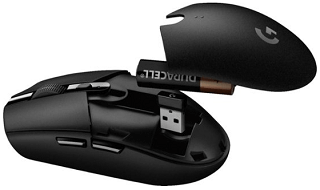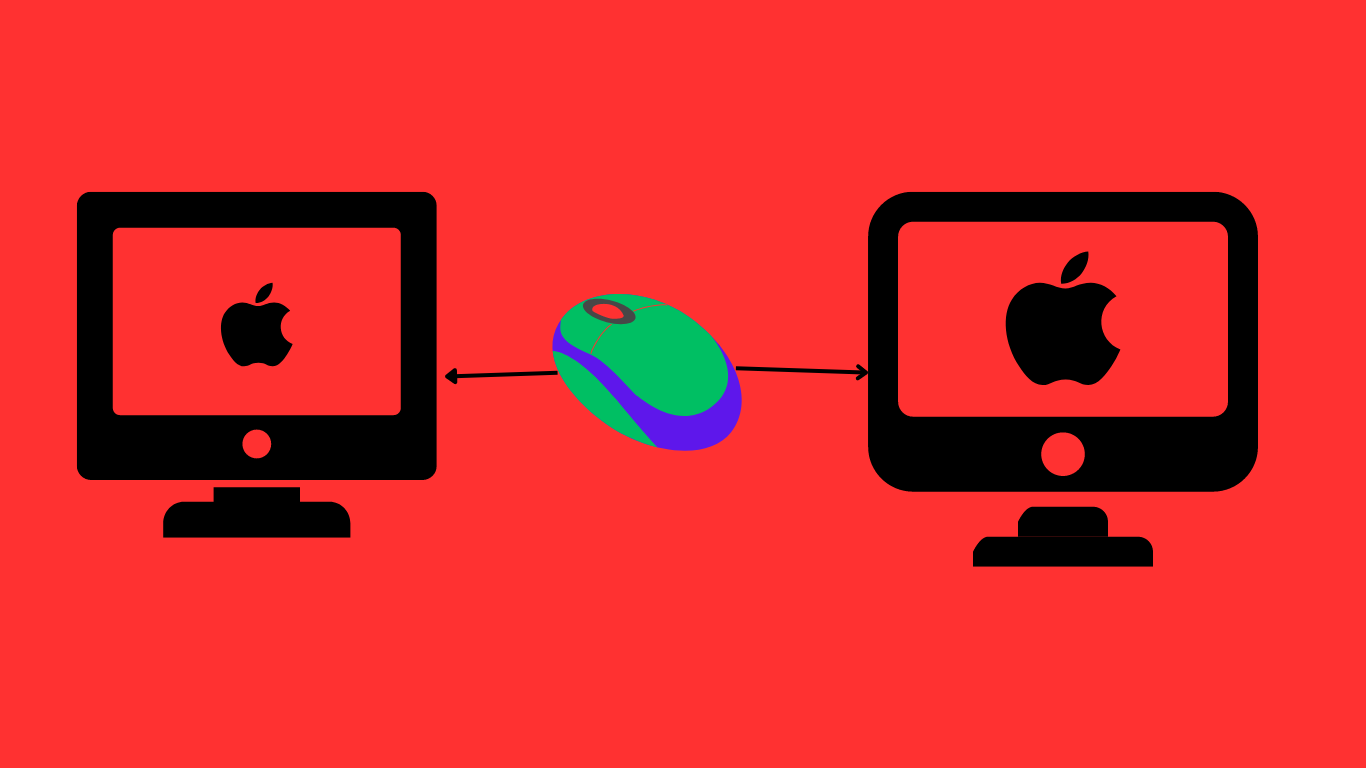Do Wireless Mouse Need Batteries
Are you curious about whether wireless mice need batteries? Well, you’ve come to the right place! 🖱️ Let’s dive into this fascinating topic and find out the answer together, shall we?
If you’re like most people, you’ve probably used a computer or a laptop at some point. And chances are, you’ve also come across wireless mice. But here’s the burning question: do these nifty gadgets require batteries to function? 🤔
In this article, we’re going to explore the world of wireless mice and uncover the truth behind their power source. So, get ready to uncover the inner workings of these tech marvels and discover whether they need batteries or if there’s some magical alternative at play! Let’s begin our wireless adventure! 💫💻
Wireless mice require batteries to function. The batteries power the wireless connection between the mouse and your computer, allowing for seamless movement and cursor control. Most wireless mice use either AA or AAA batteries, which need to be replaced periodically depending on usage. Some advanced wireless mice come with rechargeable batteries, eliminating the need for constant replacements. Make sure to check the product specifications to determine the battery requirements for your wireless mouse.
Do Wireless Mouses Need Batteries?
Wireless mice have become a popular choice for computer users due to their convenience and flexibility. One common question that arises when considering a wireless mouse is whether or not it requires batteries to function. In this article, we will explore the answer to this question and provide detailed information on wireless mice and their power source.
How Does a Wireless Mouse Work?
Before diving into the battery aspect of wireless mice, it is important to understand how they work. Unlike traditional wired mice that connect directly to the computer with a cable, wireless mice use radio frequency (RF) or Bluetooth technology to establish a connection. These mice come with a wireless receiver that plugs into a USB port on your computer, allowing the mouse to communicate wirelessly.
Wireless mice function using batteries or rechargeable power sources to replace the need for a physical connection. The power source is responsible for providing the necessary energy to transmit signals to the computer and power the various features of the mouse. Now, let’s explore the two main types of wireless mice in terms of power source: battery-powered and rechargeable.
Battery-Powered Wireless Mice
Many wireless mice on the market require batteries to function. These mice usually use disposable batteries, such as AA or AAA, and have a designated battery compartment where the batteries are inserted. The batteries provide the necessary power for the mouse to transmit signals and operate its features.
Battery life varies depending on factors such as the type of batteries used, the mouse’s usage patterns, and the manufacturer’s design. However, on average, most wireless mice can last several months to a year on a single set of batteries, assuming moderate usage. It is important to keep spare batteries on hand in case the power runs out unexpectedly, as this can disrupt your work or gaming sessions.
When the battery power is low, wireless mice typically send indications to the user, such as a blinking light on the mouse or a pop-up notification on the computer screen. At this point, it is crucial to replace the batteries to ensure uninterrupted functionality.
Rechargeable Wireless Mice
Sensing the need for longer-lasting power solutions and reducing environmental waste, many manufacturers have introduced rechargeable wireless mice. These mice come with built-in rechargeable batteries that can be charged using a USB cable or a charging dock. They eliminate the need for disposable batteries, providing a more convenient and eco-friendly solution.
Rechargeable wireless mice usually offer longer battery life compared to their disposable battery-powered counterparts. The exact duration depends on factors such as usage frequency, the intensity of use, and the specific mouse model. Some mice even feature fast charging capabilities, allowing you to quickly charge the mouse for a short period and continue using it while it charges.
It is worth noting that rechargeable wireless mice often come at a higher price point initially. However, considering the cost of purchasing multiple sets of disposable batteries over time, the investment in a rechargeable mouse can be more cost-effective in the long run.
Pros and Cons of Battery-Powered and Rechargeable Wireless Mice
To help you make an informed decision, let’s compare the pros and cons of battery-powered and rechargeable wireless mice:
Battery-Powered Wireless Mice:
Pros:
- Portability: You can replace batteries on the go without the need for a charging source.
- Availability: Disposable batteries are widely available and can be purchased easily.
- Lower upfront cost: Battery-powered wireless mice are generally more affordable upfront.
Cons:
- Dependency on batteries: Regular replacement of batteries can be inconvenient and costly in the long run.
- Environmental impact: Disposable batteries contribute to environmental waste.
- Potential for unexpected power drain: It is essential to have spare batteries on hand or risk interruptions in usage.
Rechargeable Wireless Mice:
Pros:
- Convenience and cost-effectiveness: Rechargeable mice eliminate the need for battery replacements, saving money in the long term.
- Eco-friendly: Rechargeable batteries reduce environmental waste.
- Longer battery life: Rechargeable wireless mice often provide longer battery life on a single charge.
Cons:
- Charging dependency: Rechargeable mice require a power source for charging, which may not be readily available in all situations.
- Higher upfront cost: Rechargeable wireless mice tend to be more expensive initially.
- Potential downtime during charging: If the mouse runs out of battery in the middle of usage, you need to pause or switch to an alternative mouse until it charges.
Factors to Consider When Choosing a Wireless Mouse
When selecting a wireless mouse, it is important to consider several factors:
Ergonomics:
Choose a mouse that feels comfortable in your hand and supports your natural wrist and hand positions. Ergonomic designs can reduce the risk of strain or discomfort during extended computer use.
Connectivity:
Determine whether you need a mouse with RF or Bluetooth connectivity, depending on your device’s compatibility and range requirements.
Power Source:
Decide whether you prefer a battery-powered or rechargeable wireless mouse based on your usage patterns, convenience needs, and environmental concerns.
Sensitivity and Buttons:
Consider the sensitivity levels and the number of programmable buttons on the mouse, especially if you use applications or software that benefit from additional controls.
Conclusion
In conclusion, wireless mice can operate using either batteries or rechargeable power sources. Battery-powered wireless mice require disposable batteries for operation and have varying battery life. On the other hand, rechargeable wireless mice come with built-in batteries that can be charged for extended use. When choosing between the two types, consider factors such as portability, cost, convenience, and environmental impact. Ultimately, the decision boils down to personal preference and individual needs.
Key Takeaways: Do Wireless Mouses Need Batteries?
- Wireless mouses require batteries to function.
- Most wireless mouses use AA or AAA batteries.
- The battery life of a wireless mouse depends on its usage and the type of batteries used.
- Some wireless mouses have rechargeable batteries, eliminating the need for disposable ones.
- It is important to check the battery level regularly and replace or recharge as needed to ensure optimal performance.
Frequently Asked Questions
Welcome to our FAQ section where we answer common questions about wireless mouses and the need for batteries. If you’re curious about how these innovative devices work, keep reading to find out more!
How do wireless mouses work without cables?
Wireless mouses use wireless technologies, such as Bluetooth or radio frequency, to communicate and connect with your computer. These technologies allow the mouse to send signals wirelessly to a receiver that is plugged into a USB port on your computer. This eliminates the need for cables and provides you with more freedom to move.
So, instead of being physically connected to your computer, wireless mouses use wireless signals to transmit your movements and clicks, making them conveniently portable and less cluttered on your desk. However, it’s important to note that wireless mouses do require batteries to power their wireless functionality.
Do wireless mouses always need batteries?
Yes, wireless mouses typically require batteries to operate. Due to their wireless nature, these mice rely on battery power to function. The batteries provide the necessary electrical energy to power the wireless communication between the mouse and the receiver.
It’s worth noting that the battery life of wireless mouses can vary depending on factors such as the type of mouse, battery capacity, usage patterns, and power-saving features. Some wireless mouses are designed to be more energy-efficient, extending the battery life and reducing the need for frequent replacements.
How long do the batteries in a wireless mouse last?
The battery life of a wireless mouse depends on various factors. Generally, wireless mouses can last anywhere from several weeks to several months on a single set of batteries. However, this can vary depending on the intensity of usage, the type of batteries used, and whether the mouse has power-saving features.
To maximize battery life, you can try using high-quality batteries, turn off the mouse when not in use, or use power-saving settings if available. Some wireless mouses even come with low-battery indicators, so you can be alerted when it’s time to replace the batteries.
What types of batteries do wireless mouses use?
Wireless mouses typically use either disposable batteries (such as AA or AAA) or rechargeable batteries. The specific battery type required will vary depending on the mouse model. It’s important to check the manufacturer’s specifications or user manual to determine the compatible battery type for your wireless mouse.
If you prefer a more eco-friendly option, rechargeable batteries can be a good choice. They can be reused multiple times, reducing the number of batteries discarded into the environment. However, it’s essential to ensure that the rechargeable batteries are compatible with the mouse and charger to avoid any damage.
Are there any wireless mouses that don’t require batteries?
While the majority of wireless mouses require batteries, there are some models available that don’t need traditional batteries. These alternate options often use rechargeable batteries that can be charged via a USB cable or wireless charging pad. With these mice, you’ll need to recharge the battery periodically, but you won’t have to keep purchasing disposable batteries.
Wireless mouses that use alternative power sources are becoming more popular due to their convenience and environmental benefits. However, it’s important to note that these mice may have a higher initial cost compared to traditional battery-powered wireless mouses.


Summary
So, to wrap it up, wireless mouses do need batteries to work. Unlike wired mouses, they can’t draw power from your computer. The batteries provide the energy needed for the mouse to send signals to your computer and move the cursor on the screen.
However, wireless mouses are still convenient because they don’t have a wire that limits your movement. Just remember to keep some spare batteries around in case your mouse runs out of power. And don’t worry, changing the batteries is usually a simple and quick process. Enjoy using your wireless mouse!




